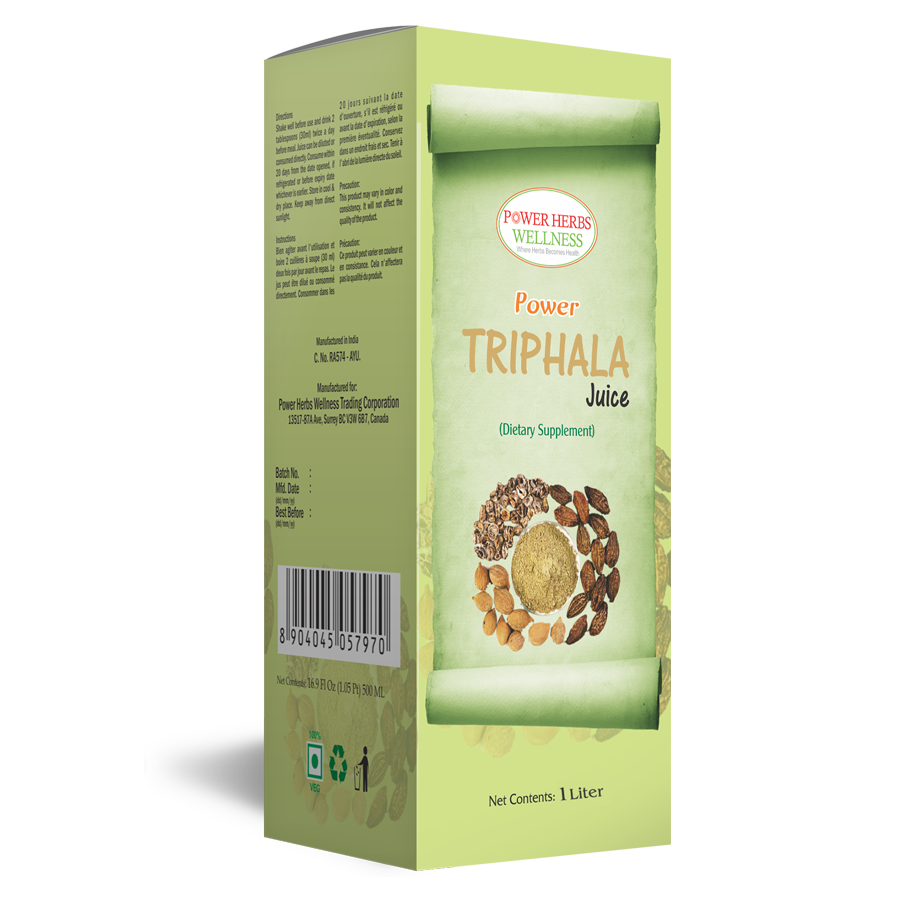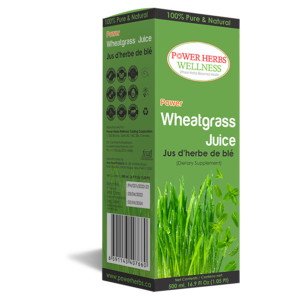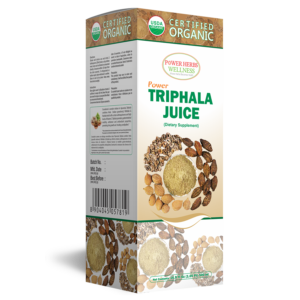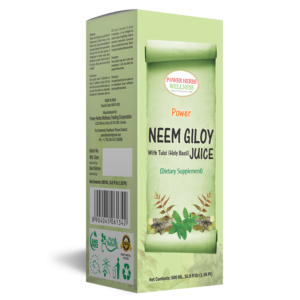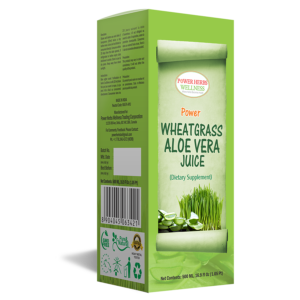Description
Power’s Herbal and Natural Triphla Juice
Benefits:On basis of Research Studies, Meta Analysis and The Ayurvedic Pharmacopoeia of India
Triphla” Literally meaning “three fruits”, triphala is a traditional Ayurvedic herbal formulation consisting of three fruits native to the Indian subcontinent: Amalaki (Emblica officinalis), Bibhitaki (Terminalia belerica) and Haritaki (Terminalia chebula)/ « Triphla » signifiant littéralement « trois fruits », triphala est une formulation de fines herbes traditionnelle d’Ayurvedic se composant de trois fruits indigènes au sous-continent indien : Amalaki (officinalis d’Emblica), Bibhitaki (belerica de Terminalia) et Haritaki (chebula de Terminalia).
As per Health Canada Website
All products
- Traditionally used in Ayurveda as a laxative for the relief of occasional constipation (Chouhan et al. 2013; Murthy 2004).
- Traditionally used in Ayurveda as an eye tonic (Chouhan et al. 2013; Murthy 2004).
Products containing Triphala and/or Amalaki and/or Haritaki
- Traditionally used in Ayurveda as Rasayana (rejuvenative tonic) (Murthy 2004; API 2001; Nadkarni 1976).
- Traditionally used in Ayurveda as a digestive tonic to promote digestive fire, increase appetite and aid in digestion (stomachic) (Paranjpe 2005; Sudarshan 2005; Warrier et al. 2003; Kapoor 2001; Gogte 2000; Khory and Katrak 1999).
Products containing Amalaki
- Traditionally used in Ayurveda to help relieve symptoms such as heartburn and indigestion associated with Amlapitta (hyperacidity/dyspepsia) (Warrier et al. 2003; API 2001; Gogte 2000).
- Source of/Provides antioxidants (Duke 2018, Paranjpe 2005; Williamson 2002; API 2001; Kapoor 2001).
Products containing Haritaki and/or Bibhitaki
- Traditionally used in Ayurveda to help expel intestinal worms (vermifuge) (Sukh Dev 2006; Kirtikar and Basu 1981; Nadkarni 1954).
- Traditionally used in Ayurveda to help relieve cough (Sukh Dev 2006; API 2001).
Products containing Haritaki
Traditionally used in Ayurveda to help relieve colic pain and flatulence (carminative) (Sukh Dev 2006; Khare 2004
